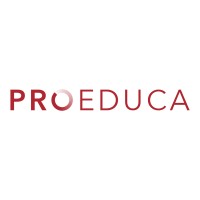
UNIVERSIDAD 2024
QUALENTUM
By Juanjo Amorin, Founder & President
Addressing talent scarcity in the Spanish economic context
In the current Spanish economic context, talent scarcity has become a significant obstacle to the growth of both the private and public sectors. The immediate demand for qualified professionals, especially in areas like Data and Artificial Intelligence (AI), has led to a talent deficit that negatively impacts productivity and growth prospects. This problem is further exacerbated in a country that leads Europe in unemployment figures, with a rate of 11.7% in June 2023 and a youth unemployment rate of 27.4%.
This article will explore Qualentum’s innovative academic model and its contribution to addressing this challenge by providing specific training and practical solutions to meet the demand for talent in the job market. It examines aspects such as the adopted pedagogical model, student selection, differentiation from traditional university education, evaluation and accreditation, post-graduation support, instructor training, and early results demonstrating the positive impact of this company on its students’ employability. The article concludes with a vision of Qualentum’s future and its commitment to a hyper-personalized training model.
The talent shortage in Spain
The growing demand for professionals in technology, especially in fields like AI, has led to a significant gap between supply and demand in the Spanish labor market. A recent report by IndesIA – a consortium of companies led by Repsol, Ferrovial, and Telefónica, joined by Airbus, Inditex, Gestamp, Navantia, Microsoft, and Técnicas Reunidas – highlights that the lack of local talent could cost the Iberian country up to 14.5 billion euros, equivalent to 1.3% of GDP. For example, in 2023 alone, more than 6,500 job offers in Data and AI could not be filled due to a shortage of qualified professionals. Figures like these underscore that talent scarcity and its impact on various sectors require both public and private involvement in the search for innovative solutions.
The speed of the market as the origin of the problem.
The accelerated evolution of the digital economy has created a scenario in which the speed of transformation exceeds the capacity of academic institutions, both universities and vocational training centers (FP), to generate study plans that adapt immediately to the needs of the labor market. However, it is important to highlight that this gap does not imply a deficiency in the work of these institutions; on the contrary, it underscores the magnitude of the efforts made to align with the skills and competencies demanded by companies today. The solid academic foundation and promotion of critical thinking provided by these institutions remain fundamental pillars for the education of citizens prepared to face the challenges of a constantly changing society.

However, although it is a multifactorial problem, it is undeniable that this imbalance between the speed of the digital economy and the adaptability of academic institutions has sown the seed of an evident deficit in the supply of specialized professionals in digital services and technology, directly affecting the employability of graduates and the ability of companies to fill key positions in their teams.
In this scenario, Qualentum emerges as a strategic response to address this gap. Recognizing the need for more agile and specific training, the institution’s last mile of express training is presented as a practical and updated solution to the most recent demands of industries. Furthermore, the specialized training offered not only addresses the need for speed but also focuses on the practicality and applicability of the acquired knowledge.
This learning methodology focuses on providing students with the specific competencies that companies are looking for, intensively and focusedly. This practical approach ensures that graduates not only have theoretical knowledge but are also prepared to apply that knowledge immediately in dynamic and challenging work environments.
Last mile learning: employment-oriented

The innovative core of Qualentum lies in specific training designed to equip students with targeted competencies, preparing them to integrate rapidly into the workplace environment. This methodology begins with student selection: Qualentum’s selection team is responsible for identifying and recruiting talent from various sources, including vocational training centers, universities, business schools, and job platforms. Candidates are evaluated based on various criteria such as academic achievements, technological and digital skills, enthusiasm for learning, language proficiency, and overall motivation.
It is important to highlight that Qualentum works with professional profiles that already possess the foundations of specialization. The first example that reflects this is that all of its last-mile bootcamps in programming assume that the profile knows how to program; they have advanced programming fundamentals and are familiar with software and hardware-based systems. A second example: if they train specialists in marketing data analytics, they start with students who have a basis in statistics and a basic level of mathematics.
This is motivated by the significant difficulty of transforming professional profiles if they do not have acquired foundations forged in university or higher vocational training studies. In this way, the selected profiles usually stand out for having internalized solid theoretical concepts, and Qualentum’s teaching method allows them to take the crucial step towards the practical application of their knowledge.
Once admitted, students adopt the Action Learning methodology, which is based on learning through teams and projects. This approach does not represent a radical innovation; it simply reflects the traditional way of learning a trade: step by step, task by task, problem by problem, akin to that of a craftsman. Weekly, students—also called apprentices—immerse themselves in solving specific problems related to the trade they are developing. This process takes place in virtual laboratories, where they practice under the guidance of instructors and collaborate with other students. Essentially, the principles of traditional apprenticeship learning are applied, but technology is incorporated to optimize the educational experience and address contemporary demands.
Thirdly, to assess the performance of the student, Qualentum has a competency map that is updated daily for each professional profile, ensuring nearly real-time updating of the perfectly radiographed company demands. This system also provides a clear matrix of the itinerary that each profile must complete to reach the demanded standard. It is, therefore, a process based on 3 steps:
- Entry competencies or profile origin
- Training for competency acquisition
- Demanded exit competencies
Thanks to this triple match, it is certified that the profile is prepared to enter the company.

Furthermore, after graduation, Qualentum continues to provide support through coaches who have guided the students during their training; now they assist in the job integration process. Additionally, the selection team includes alumni in recruitment processes and offers relevant job opportunities, providing comprehensive support in the transition to the professional world.
Finally, it is worth highlighting the importance of continuous improvement in this model. For example, Qualentum instructors are active professionals in the industry and bring relevant practical experience to the students. However, in pursuit of total excellence, all undergo comprehensive training supported by a dedicated content development and instructional team, as well as technological support when needed. This continuous feedback from students allows for adjustments and optimization of teaching quality.
A methodology that directly connects with the market; Qualentum’s B2B solutions.
This academic methodology stands as the perfect link with three innovative solutions that the institution offers to address the aforementioned talent shortage and lack of key competencies facing companies today. Each of these solutions not only complements but also organically integrates with Qualentum’s pedagogical principles, creating a virtuous cycle that nurtures both students and partner companies:

CREATE YOUR TALENT
Qualentum positions itself as a strategic partner for companies by ensuring their future through precise talent planning. This program thoroughly examines the needs of the companies and then aligns them with high-quality tech profiles. Through the attraction, selection, and intensive training of professionals, this entity anticipates and prepares the ground for the future needs of companies in a changing labor market. In this model, the company bears the total cost of training; the student would only pay a penalty if they were to drop out or not complete the course.
CODE YOUR TALENT
This solution provides an unparalleled practical specialization. The emotional connection between the intern and the company is strengthened through an educational approach that goes beyond the theoretical, offering students practical experiences in real companies that not only add value to the company’s business but also reduce the chances of the internship being abandoned. Qualentum’s methodology ensures that the acquired knowledge is relevant and applicable in the real workplace environment. In this case, the company bears the cost of training, and additionally, the student receives financial aid from the start of their practical phase in the company.


BOOK YOUR TALENT
A business unit that operates as headhunting finds a natural synergy with Qualentum’s academic methodology. Through its talent pool, the institution offers profiles ready to work immediately. This direct connection between the provided training and the specific needs of companies significantly optimizes hiring processes. Qualentum’s methodology ensures that professionals emerging from its program are not only highly skilled but also ready to take on challenges from day one, thus reducing the time it takes for talent to be incorporated into the business fabric. In this final offering, students join different bootcamps through the ISA model. The tuition fee is not paid by the student until they start working, and there are three possible variants:
a. If Qualentum provides employment through its partner network, the student’s debt is reduced by 50%.
b. If the student finds employment on their own, outside of the educational institution’s partner network, they pay 100% of the training.
c. If within a maximum period of 6 months Qualentum does not offer a job vacancy to the candidate, and the candidate also fails to find employment on their own, the student benefits from the training but is exempt from paying any tuition fees or payments.
A successful present and a promising future: towards a hyper-personalized model with Artificial Intelligence
Qualentum demonstrates its positive impact through tangible success stories. Students have been placed in leading companies such as Havas and Kyndryl, and collaborations have been established with prominent companies like OMG and Publicis. These partnerships reflect the effective connection of the model with the job market. Moving forward, Qualentum’s ideal partners remain technology companies facing challenges in talent acquisition. Specialized training companies are also considered strategic allies, as evidenced by the successful collaboration with Vass.
The next step for this educational institution is to evolve towards a hyper-personalized training model, using Artificial Intelligence to automate processes and build professional profiles more efficiently. This approach aims to level heterogeneous profiles and ensure that each student reaches a standard of competencies demanded by companies. Because for Qualentum, success is defined by the employability of its students. Job acquisition is considered the true indicator of success, highlighting the effectiveness of the last-mile learning approach.
Conclusion
Qualentum presents itself as a disruptive player in the landscape of professional training, addressing the changing demands of the technological job market. Its innovative approach, pedagogical methodology, selection criteria, differentiation from university education, and measurable results demonstrate an effective commitment to the employability of its students. With a clear vision of the future, Qualentum aims to lead the evolution towards more personalized training models, using technology as an ally in preparing highly skilled professionals.
Author: Juanjo Amorín
Founder & President of Qualentum

Universidad 2024 was created in collaboration with:
The Proeduca Group
PROEDUCA’s objective is to provide the best online higher education to its students and it achieves this through educational commitments at three universities: The International University of La Rioja, the Online University of Mexico (UNIR Mexico), and CUNIMAD. It also offers studies located in Peru, at the Newman Postgraduate School, and in the United States, where it has a presence through MIU City University Miami.
